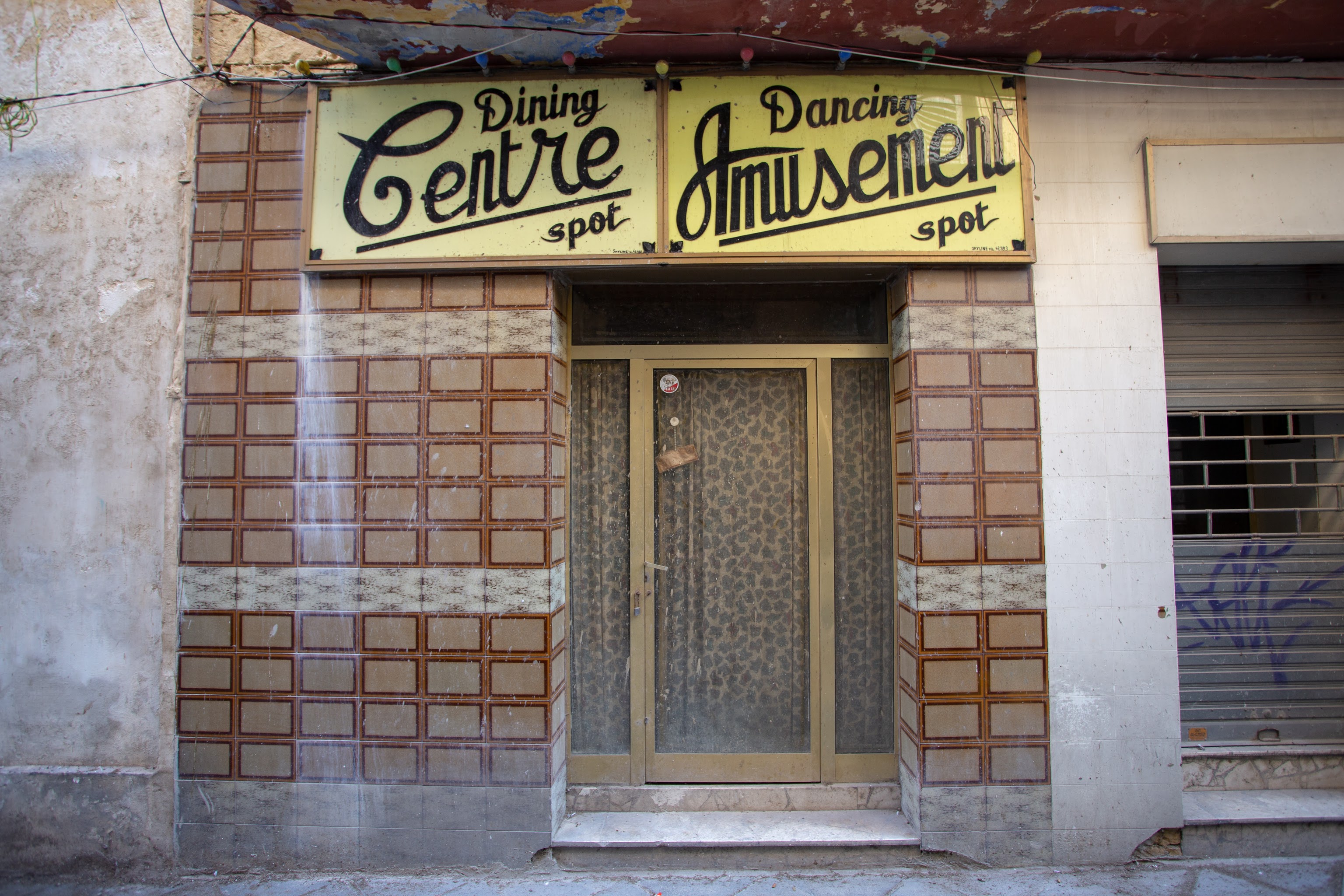I stayed inland on Malta, in Rabat. But on this day I went down to the sea in Valleta. It used to be that I always saw the sea, but now I spend so much time away. The port there in Valleta is perfect, nestled deep within solid rock canyon walls, around a bend from the open ocean, and able to hold hundreds of large vessels. No wonder Malta has been settled by mariners since prehistory. I walked down the quayside looking at the plastic yachts, the big work boats, and the occasional boat with some character. The sun was starting to go down on all the sandstone buildings that crowded the harbor. The colors were getting really good.
The history of Malta is turbulent. The Muslims killed everyone on the island in 870 and then left. Then later Muslims colonized it in 1050. Later Christians came back, and later still in the 1200s kicked all the Muslims out. It’s a small place, you can do that sort of thing.
There are several ancient temples on the island, all older than Stonehenge. I went to see one but it was Good Friday so they were closed. For some reason a guard was there to tell me that (he could have also just let me in!) so I pointed out that the temples were built 4,000 years before his god had such a good Friday. But that didn’t persuade him.
In that ideal harbor in Valleta a church looms over the shallow end. With the sun going down I searched for a bar. Google promised cocktails up the hill behind the church, so up I went. I’m always out of step with the locals and though the bar was open it was just me and the young man behind the bar. He was Irish, from somewhere near Galway. So we had walked the same streets there, though at different times. I asked for a “Boulevardier” and he got to work.
He was in Malta for school. School is free for EU citizens in Malta. Also, the Maltese speak English from their time under the thumb of the Queen. I suppose the same is true of the Irish. But for all of the strangeness of the ancient Celtic languages, Gaelic and English are more closely related than Maltese and English. Maltese is basically Arabic.
The bartender finished up my drink, handing me a strong cocktail the size of my head. And I have an enormous head. Oh well, I thought, I can honestly say I just had one drink.
They talk a lot about Europe in Europe these days. The talk is about the migrants and refugees from the south, the disaffection of the rural people who have been left behind, Brexit and all the other divisive topics. Basically, is it to be Europe or go back to being a lot of small independent countries?
In the US for the most part everything gets mixed up. Our culture is diffuse enough, and at the same time pervasive enough that you just join it. It’s like a meringue, fluffy and insubstantial. But cultures in Europe are as thick as liver pâté. A couple of Italians get together in Berlin and that's it: locally you are in Italy.
The boss came in to check on the bartender. He was Irish too. We had a nice chat. Locally Malta was kind of Irish for a bit.
They talk about differences as a reason to disband the EU. They say that the countries are both so economically and so culturally distinct that they can’t coexist with open borders and mobility. And they have a point. It seems the language of Berlin is English these days. What if all of Europe goes that way?
But in place of unions you can have empires. What if Malta hadn’t been handed from empire to empire (given as a goddamn gift to a sect of Catholics at one point), finally ending up in Britain's hands? How much more diverse the population would be today. Maybe they would still speak Phoenician?
And if Ireland could have joined the EU a few hundred years earlier there would be a lot more Irishmen alive, and they’d be speaking Gaelic, not English.
It’s one thing to stand alone if you are strong, but what if you are weak? A union doesn’t necessarily mean less diversity. The alternative could be worse.













